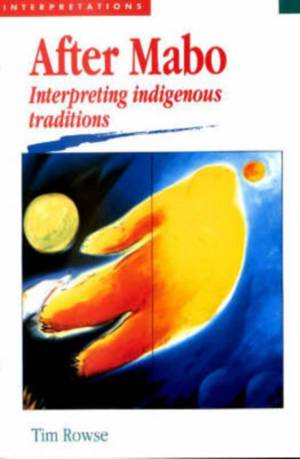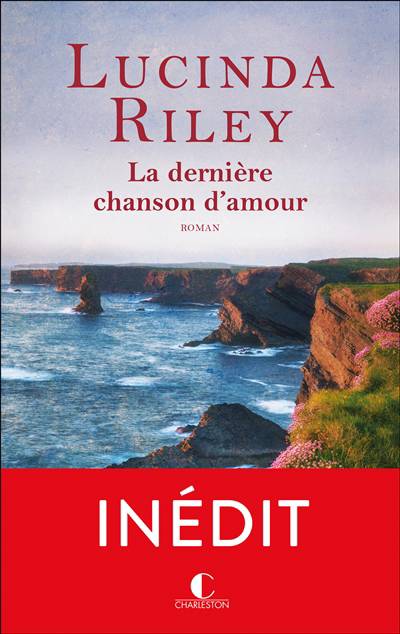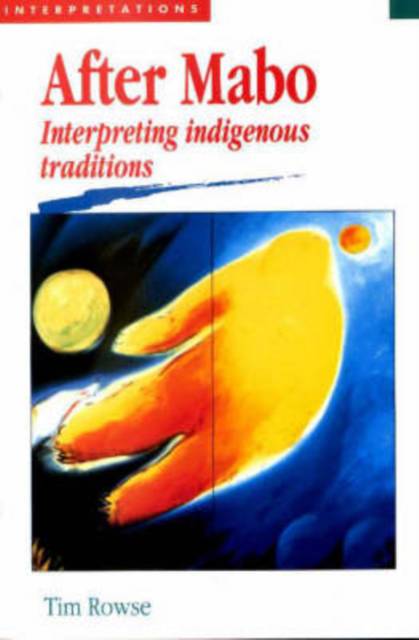
- Retrait en 2 heures
- Assortiment impressionnant
- Paiement sécurisé
- Toujours un magasin près de chez vous
- Retrait gratuit dans votre magasin Club
- 7.000.0000 titres dans notre catalogue
- Payer en toute sécurité
- Toujours un magasin près de chez vous
Description
After Mabo draws on such disciplines as history, political science, anthropology, cultural studies, ecology and archaeology to introduce some dominant critiques of non-Aboriginal ways of perceiving Aboriginality.
In After Mabo, Tim Rowse draws on such disciplines as history, political science, anthropology, cultural studies, ecology and archaelogy to introduce some dominant critiques of non-Aboriginal ways of perceiving Aboriginality, focusing on the moral and legal traditions of settlers and indigenous peoples, their different attitudes towards the environment, the institutional heritage of 'Aboriginal welfare', tensions between indigenous cultures and indigenous politics, and the representation of Aboriginal identities by indigenous writers.
Spécifications
Parties prenantes
- Auteur(s) :
- Editeur:
Contenu
- Nombre de pages :
- 168
- Langue:
- Anglais
- Collection :
Caractéristiques
- EAN:
- 9780522844924
- Date de parution :
- 07-03-25
- Format:
- Livre broché
- Format numérique:
- Trade paperback (VS)
- Dimensions :
- 140 mm x 216 mm
- Poids :
- 272 g

Seulement chez Librairie Club
Les avis
Nous publions uniquement les avis qui respectent les conditions requises. Consultez nos conditions pour les avis.







